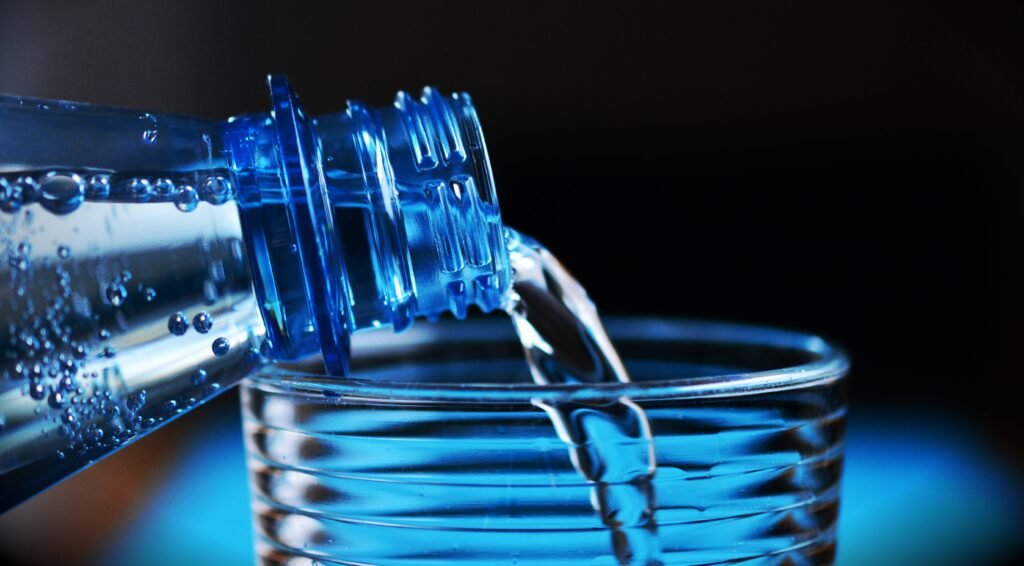Did you know that staying hydrated is crucial for your overall health and well-being? We often hear about the importance of drinking water, but do we really understand why? Well, water not only quenches our thirst, but it also plays a vital role in keeping our bodies functioning properly. It helps to flush out harmful particles and bacteria, ensuring that our internal systems stay clean and healthy. So, the next time you reach for that refreshing glass of water, remember that you are not just quenching your thirst, but also providing your body with the essential hydration it needs to thrive.
The Importance of Staying Hydrated
Staying hydrated is crucial for maintaining good health and overall well-being. Water is not only essential for our survival, but it also plays a vital role in various bodily functions. In this article, we will explore the importance of staying hydrated and how it affects our bodies.
Water as a Vital Nutrient
Water is often overlooked as a nutrient, but it is just as important as any other nutrient in our diet. It is essential for our bodies to function properly and maintain optimal health. Water is involved in all aspects of bodily functions and is necessary for the survival of every cell in our body.
Water Balance in the Body
Maintaining a proper water balance in the body is crucial for optimal health. Our bodies constantly lose water through various means such as sweating, urinating, and even breathing. To ensure that our bodies function properly, it is important to replenish the lost fluids and maintain a proper balance of water in our cells, tissues, and organs.
Effects of Dehydration
Dehydration occurs when the body loses more water than it takes in. Even mild dehydration can have significant negative effects on our overall well-being. Some of the common symptoms of dehydration include increased thirst, dry mouth, dizziness, fatigue, and decreased urine output. If left untreated, dehydration can lead to more serious complications such as organ damage and heat stroke.
Functions of Water in the Body
Water serves a multitude of functions in our bodies, and without it, these functions would be compromised. Let’s take a closer look at some of the key roles water plays in our bodies:
Regulation of Body Temperature
One of the primary functions of water is regulating body temperature. It helps dissipate heat through sweating and keeps the body cool, especially during physical activity or hot weather conditions. Without adequate hydration, our bodies can overheat, leading to heat exhaustion or even heatstroke.
Transportation of Nutrients and Oxygen
Water acts as a carrier, transporting essential nutrients and oxygen to our cells, tissues, and organs. It helps facilitate the absorption and distribution of these vital substances throughout the body, ensuring that our cells receive the nutrients they need to function properly.
Normalization of Body Functions
Water is involved in the normal functioning of various bodily processes such as digestion, metabolism, and waste elimination. It helps break down food, aids in nutrient absorption, and ensures the smooth passage of waste products out of the body. Without sufficient water, these processes can be disrupted, leading to digestive issues and constipation.
Protection and Lubrication of Joints
Water plays a crucial role in protecting and lubricating our joints. It helps cushion the joints, reducing friction between the bones and allowing for smooth movement. Adequate hydration is especially important for individuals who engage in physical activities or suffer from joint-related conditions such as arthritis.
Aiding Digestion and Metabolism
Proper hydration is essential for maintaining a healthy digestive system. Water helps soften stools, making them easier to pass and preventing constipation. It also aids in the breakdown and absorption of nutrients, ensuring that our bodies can efficiently extract the energy from the food we consume.

This image is property of images.pexels.com.
Determining Your Hydration Needs
Understanding your daily water requirements is key to staying properly hydrated. While the amount of water individuals need can vary based on various factors, there are general guidelines to help determine your hydration needs.
Understanding Daily Water Requirements
The recommended daily water intake varies depending on factors such as age, sex, weight, and activity level. As a general guideline, it is recommended to drink at least eight 8-ounce glasses of water per day, which equals about 2 liters or half a gallon. However, individual needs may vary, and it is important to listen to your body’s thirst cues and adjust your intake accordingly.
Factors Affecting Water Needs
Several factors can influence your individual water needs. Physical activity level, climate and temperature, health conditions, and medications can impact how much water your body requires. Sweating during exercise or in hot and humid weather conditions increases the need for fluids to replace lost water. Certain health conditions, such as diabetes or kidney disease, may also require individuals to monitor their fluid intake more closely.
Signs of Dehydration
Recognizing the signs of dehydration is crucial for taking the necessary steps to rehydrate your body. Some common signs of dehydration include increased thirst, dry mouth, fatigue, dizziness, decreased urine output, dark-colored urine, muscle cramps, confusion, irritability, and a rapid heart rate. If you experience any of these symptoms, it is important to drink water and seek medical attention if necessary.
Benefits of Drinking Sufficient Water
Drinking sufficient water has numerous benefits for our overall health and well-being. Let’s explore some of the key benefits of staying properly hydrated:
Improved Physical Performance
Proper hydration is essential for maximizing physical performance. When adequately hydrated, our bodies can maintain optimal endurance, muscle strength, and coordination. Dehydration, on the other hand, can lead to decreased athletic performance, increased fatigue, and reduced motivation to exercise.
Enhanced Brain Function
Staying hydrated is not only important for our physical health but also for our cognitive function. Research has shown that dehydration can impair brain function and lead to poor concentration, decreased alertness, and impaired memory. By staying properly hydrated, you can improve your mental clarity, focus, and overall brain function.
Weight Management
Drinking water can aid in weight management and promote healthy weight loss. Water has zero calories and can help satisfy hunger and reduce calorie intake when consumed before meals. Additionally, staying hydrated can promote proper digestion and metabolism, both of which are important for maintaining a healthy weight.
Healthy Skin
Proper hydration is essential for achieving and maintaining healthy skin. Water helps keep the skin hydrated, giving it a youthful and radiant appearance. It can also help reduce the risk of skin problems such as dryness, flakiness, and acne. Drinking sufficient water is an easy and natural way to nourish your skin from the inside out.
Boosted Immune System
Staying hydrated is vital for a strong and healthy immune system. Water helps flush out toxins from the body, supports the production of immune cells, and aids in the proper functioning of the lymphatic system. By maintaining proper hydration, you can enhance your body’s ability to fight off illnesses and infections.
Support for Kidney Function
Proper hydration is crucial for maintaining healthy kidney function. The kidneys rely on water to filter waste products from the blood and produce urine. When well-hydrated, the kidneys can efficiently remove waste and toxins from the body. Insufficient water intake, on the other hand, can increase the risk of kidney stones and urinary tract infections.

This image is property of images.pexels.com.
Tips for Increasing Fluid Intake
If you find it challenging to drink enough water throughout the day, here are some tips to increase your fluid intake:
Carrying a Water Bottle
Carrying a water bottle with you wherever you go can serve as a constant reminder to drink water. Choose a bottle that is convenient to carry and keep it readily available throughout the day. Sip on water regularly, and aim to finish your bottle before refilling it.
Setting Reminders
In our busy lives, it can be easy to forget to drink enough water. Set reminders on your phone or use apps that send you notifications at regular intervals to remind you to drink water. This can help you stay on track and make hydration a priority.
Infusing Water with Fruits or Herbs
If plain water seems boring to you, try infusing it with fresh fruits or herbs. Adding slices of citrus fruits like lemon or orange, or herbs like mint or basil, can add flavor and make drinking water more enjoyable. Experiment with different combinations to find your favorite infused water flavors.
Eating Water-Rich Foods
In addition to drinking water, you can also increase your fluid intake by consuming water-rich foods. Fruits and vegetables such as watermelon, cucumbers, strawberries, and tomatoes have high water content and can contribute to your overall hydration. Snack on these foods throughout the day to boost your fluid intake.
Drinking Before, During, and After Exercise
When engaging in physical activity, it is crucial to drink water before, during, and after your workout sessions. This helps replenish the fluids lost through sweating and keeps your body hydrated. Remember to listen to your body’s thirst cues during exercise and drink enough water to stay properly hydrated.
Factors That Influence Hydration
Several factors can influence our hydration levels. Understanding these factors can help us maintain proper hydration and address any specific needs we may have:
Climate and Temperature
The climate and temperature of your environment can significantly impact your hydration needs. Hot and humid weather conditions, as well as high altitudes, can lead to increased water loss through sweating. In these situations, it is important to drink more water to compensate for the increased fluid loss.
Physical Activity Level
Engaging in physical activity increases fluid loss through sweating. The longer and more intense your workout, the more water you need to drink to stay properly hydrated. It is important to drink water before, during, and after exercise to replace the fluids lost and maintain optimal performance.
Age and Gender
Age and gender can also affect your hydration needs. Older adults may have a decreased sense of thirst, making it important for them to actively monitor their fluid intake. Additionally, pregnant or breastfeeding women may require higher water intake due to increased fluid loss.
Certain Health Conditions
Certain health conditions may impact your body’s ability to retain water or increase fluid loss. Conditions such as diabetes, kidney disease, and gastrointestinal disorders can affect your hydration needs. If you have any underlying health conditions, it is advisable to consult with a healthcare professional to determine your specific hydration requirements.
Medications and Diuretics
Certain medications and diuretics, such as those used to treat high blood pressure, can increase urinary output and lead to greater fluid loss. If you are taking any medications that may affect your hydration, it is important to be aware of this and adjust your fluid intake accordingly.

This image is property of images.pexels.com.
Common Myths About Hydration
There are several misconceptions and myths surrounding hydration. Let’s debunk some of the most common myths:
8 Glasses of Water a Day
The idea that you need to drink eight glasses of water a day is not based on scientific evidence. While this can serve as a general guideline, individual water needs vary. It is important to listen to your body’s thirst cues and drink enough water to stay adequately hydrated.
Only Thirst Indicates Dehydration
Thirst is not the only indicator of dehydration. By the time you feel thirsty, your body may already be experiencing mild dehydration. It is important to drink water regularly throughout the day and not solely rely on thirst as a signal to hydrate.
Coffee and Tea Dehydrate You
Contrary to popular belief, moderate consumption of coffee and tea does not lead to dehydration. While caffeine is a mild diuretic, the fluid content in coffee and tea still contributes to your overall daily fluid intake. However, it is important to balance your intake with plain water to maintain hydration.
Sports Drinks Are Always Necessary
Sports drinks can be beneficial for individuals engaging in prolonged and intense physical activity, as they help replenish electrolytes and carbohydrates. However, for regular hydration needs, plain water is usually sufficient. Sports drinks should not be considered necessary for everyday hydration.
You Can’t Overhydrate
While rare, it is possible to drink too much water, leading to a condition called hyponatremia. Hyponatremia occurs when the body’s sodium levels become dangerously low. It is important to listen to your body’s thirst cues and not force excessive amounts of water if you are not feeling thirsty.
Tips for Monitoring Hydration Levels
Monitoring your hydration levels is important for ensuring that you are staying properly hydrated. Here are some tips to help you assess your hydration status:
Checking Urine Color and Frequency
Monitoring the color and frequency of your urine can give you valuable insight into your hydration levels. Light yellow or clear urine is a good indication of adequate hydration, while dark-colored urine may suggest dehydration. Additionally, urinating at regular intervals throughout the day is another sign of proper hydration.
Weighing Yourself Before and After Exercise
For individuals who engage in intense physical activity, weighing yourself before and after exercise can help determine the amount of fluid loss during your workout. If you have lost weight, it is important to drink enough water to replenish the fluids lost.
Monitoring Thirst Sensation
While thirst is not the only indicator of hydration, it is still a valuable cue to pay attention to. If you feel thirsty, it is a sign that your body needs fluids. Drink water when you feel thirsty, and aim to drink enough throughout the day to stay properly hydrated.
Warning Signs of Dehydration
Recognizing the warning signs of dehydration is crucial for addressing it promptly. Some common symptoms of dehydration include:
Dry Mouth and Increased Thirst
Dry mouth is a common symptom of dehydration. If you find that your mouth feels dry or sticky, it may be an indication that you need to drink more water. Increased thirst is your body’s way of signaling that it requires hydration.
Headaches and Fatigue
Dehydration can cause headaches and fatigue. If you experience persistent headaches or feel excessively tired, it could be a result of inadequate fluid intake. Drinking water can help alleviate these symptoms in many cases.
Dizziness and Lightheadedness
Dehydration can lead to dizziness and lightheadedness, especially when standing up quickly. If you feel dizzy or lightheaded, it is important to sit or lie down, and drink water to rehydrate your body.
Decreased Urination and Darker Urine
If you notice a decrease in your urine output or if your urine appears darker than usual, it may indicate dehydration. Proper hydration ensures that your body produces enough urine and that it is light in color.
Muscle Cramps and Weakness
Dehydration can cause muscle cramps and weakness. If you experience muscle cramps or feel weak, especially during physical activity, it may be a sign that your body needs water.
Confusion and Irritability
Severe dehydration can affect your mental state, leading to confusion and irritability. If you find it difficult to concentrate or notice changes in your mood, it is important to rehydrate your body to alleviate these symptoms.
Rapid Heart Rate
Dehydration can cause an increase in heart rate. If you experience a rapid or irregular heartbeat, it may be a sign of inadequate fluid intake. Drinking water can help regulate your heart rate and keep it within a healthy range.
Conclusion
Staying hydrated is essential for maintaining optimal health and well-being. Water is a vital nutrient that supports various bodily functions and is necessary for our survival. By understanding the importance of staying hydrated, recognizing the signs of dehydration, and following simple tips to increase fluid intake, you can ensure that your body remains properly hydrated. Make hydration a priority in your daily routine and reap the numerous benefits it brings to your overall health. Remember, your body relies on water to function properly, so drink up and stay hydrated!
